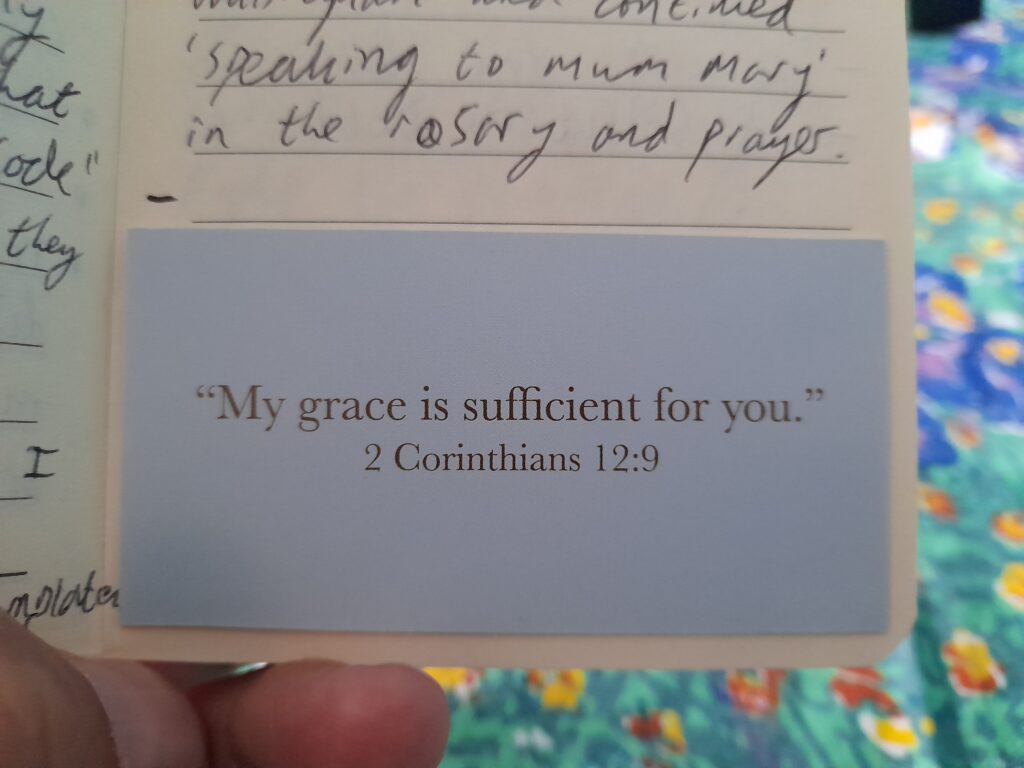
When sin comes knocking at our door—as it always seems to—we often find ourselves in a familiar place of struggle. We ponder God’s forgiveness, but sometimes, a part of us finds it difficult to accept the profound truth that He truly does forgive all our sins. We reflect on the past, remembering those moments when our connection with God was strong, when prayers were answered and our affection for our Father was deep. We wonder how that could have been real if He knew we would one day find ourselves right back here, once again fallen into the same sins that seem to wreck our lives.
This can lead us to believe we’re caught in a disheartening routine: saved, then unsaved, then confessing, and saved again. It feels like a relentless dance, a spiritual tug-of-war we can’t seem to win. But this isn’t a routine we have to accept. Instead, we are living through the reality described in Romans 7, where the apostle Paul writes of the inner battle between our desire to do what is right and the sin that still lives within us. He knew this struggle. We all know this struggle…but if you struggle and Romans & resonates – this is a great sign the Holy Spirit is with you!
We are born into this human condition, a consequence of Adam’s fall. We did not ask for this, but it is our reality. From the earth we came, and to the earth we will return. In between, we live and, yes, we sin—each of us developing our own unique set of struggles and temptations, tailored by our flesh, and dare I say Satan, to our own desires. It’s easy to look at this cycle and ask, “What’s it all about? What’s the point of it all?”
The answer lies not in our faithfulness, but in God’s. We are unfaithful, but God is faithful. Our constant failures do not change His unchanging character. He remains the same. The strong connection we felt in the past was not an illusion; it was a perfect picture of His enduring love. It was real, even though He knew we would fall again. This is the heart of the Gospel. As Romans 5:8 so beautifully puts it: “But God shows his love for us in that while we were still sinners, Christ died for us.”
He loves us unconditionally. He knows our every struggle, our every faltering step, and yet His love for us remains steadfast and true. Even when we have fallen, He is still here. His hand is always extended, ready to lift us up and remind us that our salvation is not based on our perfection, but on His perfect love and sacrifice.
Let us pause for some bible verses for comfort…
2 Corinthians 12:9: “But he said to me, ‘My grace is sufficient for you, for my power is made perfect in weakness.’ Therefore I will boast all the more gladly about my weaknesses, so that Christ’s power may rest on me.”
1 John 1:9: “If we confess our sins, he is faithful and just and will forgive us our sins and purify us from all unrighteousness.”
Hebrews 4:16: “Let us therefore come boldly to the throne of grace, that we may obtain mercy and find grace to help in time of need.”
Romans 8:1: “Therefore, there is now no condemnation for those who are in Christ Jesus.”
Psalm 103:12: “as far as the east is from the west, so far has he removed our transgressions from us.”
Psalm 103:14: “for he knows how we are formed, he remembers that we are dust.”
1 John 2:1: “My dear children, I write this to you so that you will not sin. But if anybody does sin, we have an advocate with the Father—Jesus Christ, the Righteous One.”
Doctrinal path of logic from the Bible alone…
Our Starting Point: We are born into a human condition that is prone to sin. We are “dust,” as Psalm 103:14 says, and we were unfaithful even before we were born.
God’s Action: While we were still sinners, Christ died for us. This is God’s unconditional love in action, as stated in Romans 5:8. Our salvation is initiated by His grace, not our behaviour.
The Promise of Forgiveness: When we come to God, confessing our sin, He is faithful and just to forgive us and cleanse us from all unrighteousness (1 John 1:9). His forgiveness is not conditional on us never sinning again; it is based on His character. A
New Reality: Because we are in Christ, there is no condemnation for us (Romans 8:1). Our identity is not defined by our repeated failures, but by His perfect righteousness given to us.
Our Advocate: When we do sin, we have an advocate—Jesus Christ the Righteous One—who speaks on our behalf to the Father (1 John 2:1). He is our constant defence, not our accuser.
His Grace Is Sufficient: God’s power is made perfect in our weakness (2 Corinthians 12:9). When we fall, His grace is more than enough to cover our weakness. Our repeated need for grace highlights the magnitude of His power and love, not the weakness of our salvation. Even though we may cry out to God “take this away from me Lord (just as St Paul did) God will often times reply: “My grace is sufficient for you…”

The study of – Homologeō – ὁμολογέω
It has taken me over a decade of being a Christian to finally stumble on the concept of the Greek word Homologeō – this is used in 1st John 1:9 – that famous verse we all go to when we fall: “If we confess our sins, he is faithful and just and will forgive us our sins and purify us from all unrighteousness“. Where the word “confess” is here used – us English automatically think “ I need to tell God im sorry, tell him what ive done (even though he knows) then trust in his promise of forgiveness (only to return again in the near future back to this ritual) …Now then (as they say in Yorkshire), that is true ofcourse BUT there is a works based error here which can be the crux of ones issue with assurance…
Now this study into Homologeo had me use AI through Googles Gemini APP thingy (the begining voice podcast thing was from Gemini AI research…Wow, whatever you think of AI – its like having a PHD theologian at the palm of your hands! Used for good I don’t see the problem – intent is what matters here I believe – use your discernment at all times though ofcourse. But I digress – Homologeo essentially means “to say the same thing as another, i.e. to agree with, assent or to concede”…
…Now lets ponder that for a minute – the gap in time form sin to confession and in some cases formal absolution is indeed a painful gap for many – this gap can lead us to think “I need to confess” – STOP – what do any of us need to do to be saved?…
…“For God so loved the world, that he gave his only Son, that whoever believes in him should not perish but have eternal life” John 3:16…
But learning that 1st John here uses Homologeo which we say in English “confess” essentially means we need to agree with God we are sinners…I hope you can follow me dear reader – I have actually attached the Gemini Research paper it made and its supporting Podcast thingy it made for me…it may explain it better than I am doing so here.
No then – when we sin, many of us desire a formality to say sorry in a structured way to God – our Dad… A private, silent prayer, while sincere, can be plagued by doubt, leaving a person feeling as though their confession has disappeared into the void. Following the logical conclusion of Homologeo as agreeing with God that we are sinners – how would a “confession liturgy” for private use after we sin look?…Well I asked Gemini Also about this and it drafted me this:
I could write far much more on this subject…but I feel it apt to end on what King David did after he had had an affair with Bathsheba and had her husband killed…read with me 2nd Samel 12:13;
So David said to Nathan, “I have sinned against the Lord.” (ageing he was a sinner – Homologeo principle…to confess)…
And Nathan said to David, “The Lord also has put away your sin; you shall not die”…(a declaration of forgiveness – an absolution).



0 Comments